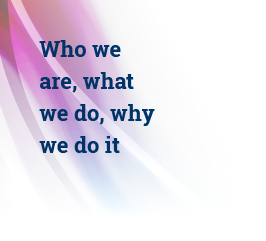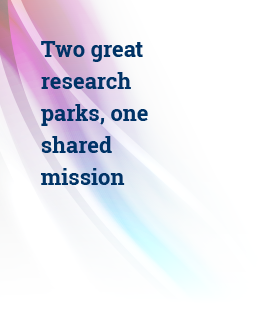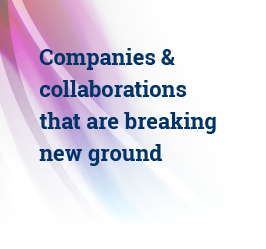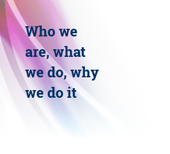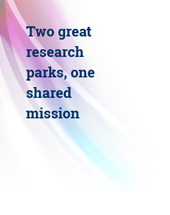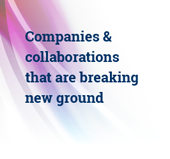Robots, lasers and more tech developed in Tucson get Spotlight
Those are just a few of the technologies developed at the University of Arizona in recent years, but the zeal of the scientists and entrepreneurs working to bring those inventions to market earned special recognition recently.
Tech Launch Arizona, the school’s technology commercialization arm, recently held its eighth annual I-Squared Awards, honoring faculty inventors and spinoff companies as well as individuals who help drive collaboration and support entrepreneurs.
Doug Hockstad, UA assistant vice president over Tech Launch Arizona, said the awardees shared not only a record of recent success but displayed a true passion to bring UA inventions to market for the greater good – a key mission of the land-grant school.
Here’s a look at the awardees:
Making food safer
I-Squared Inventor of the Year Sadhana Ravishankar, associate professor in the School of Animal and Comparative Biomedical Sciences in the UA College of Agriculture and Life Sciences, launched a startup last year to commercialize natural compounds she developed in her lab to sterilize fruits and vegetables.
Ravishankar joined the UA faculty in 2006 and has been working for more than a decade to improve food safety by developing effective, natural anti-microbials from essential oils, as an alternative to toxic substances like chlorine or peroxides.
The sanitation efforts by food producers haven’t stopped the annual outbreaks of food-borne illnesses caused by pathogens like listeria, salmonella and e. coli, she said.
“Every year we have these outbreaks, so they definitely need alternatives, and consumers today want environmentally safe alternatives,” she said.
Hockstad said Ravishankar has been very supportive of the UA’s commercialization mission.
Last year, she worked with TLA to launch a new company, PhytoCentric Solutions, to commercialize the inventions developed in her lab.
“She is really interested in getting the results of her research out in the world,” said Hocktad. “She really felt there would be an impact, which is our goal, too.”
Associate Professor Sadhana Ravishankar, right, talks with a student in her lab at the University of Arizona.
Ana Beltran, Arizona Daily Star
Ravishankar said she didn’t know anything about patent filings or technology commercialization when she came to the UA but TLA guided her every step of the way.
“With the help of Tech Launch Arizona, I was able to learn in a step-by-step process, and I’ve learned a lot over the years,” she said, noting that she gained so much confidence that she conducted an entrepreneurship webinar for students in India recently.
Ravishankar said the company is now working on natural-food sanitation products for the home consumer, “on-the-go” sanitizing solutions and products to extend the shelf life of fresh foods.
Rapid detection
The I-Squared Startup of the Year is Botanisol Analytics, which was launched to commercialize a laser screener for use in rapidly detecting pathogens including the virus that causes COVID-19, based on technology developed by UA optics professor Tom Milster.
Botanisol Analytics integrated the laser-based technology, which detects the chemical signature of a sample through a common science known as spectrometry, into a portable device that can provide results about chemical and biological threats in real time. It was originally pitched as a way to help law enforcement, the military and first responders to protect key personnel and critical infrastructure in the event of a chemical or biological incident.
But in the face of the COVID-19 pandemic, the company shifted its focus to disease detection, and last year it won a $1.5 million Air Force contract to build systems that can quickly detect the COVID-19 virus. The company was recognized by the Intelligence and National Security Alliance and the Office of the Director of National Intelligence, and also received funding from the Air Force Research Laboratory’s Biosurveillance Unit
But the system can be adapted to detect any range of pathogens by updating its software, supporting applications in other industries.
Botanisol Analytics CEO Dave Talenfeld, a UA law school graduate who got an MBA from the Eller College of Management in 2010, said the company already has achieved very high accuracy detecting viruses in under a minute and it is working on a version that will be faster and even more accurate. He noted that the device has not been approved, nor have the company’s claims been examined by the U.S. Food and Drug Administration.
The study results will support an application for an emergency use authorization from the FDA that would clear the device for public use, Talenfeld said, adding the company is planning to file for the authorization around March.
The company’s laser scanners are already in use by the military, Talenfeld said.
“Botanisol has really just been rocking it in the past year,” Hockstad said, citing the company’s pivot to disease detection.
Talenfeld, who worked in the UA’s former Office of Technology Transfer while a student in 2010, said the UA has significantly boosted its support of UA entrepreneurs under Tech Launch Arizona, which replaced the former tech-transfer office in 2012.
“TLA has been a distinct improvement, they are more supportive, more hands-on and a lot more fun for the entrepreneurs,” he said. “I’m excited this has become such a priority at the UA.”
TLA gave out a Student Innovator of the Year award to Sahand Sabet, a doctoral candidate in the College of Engineering, who with a team of UA students created a new type of robot that can both roll and fly and operate for extended periods of time.
The simple and elegant design features a vertical-lift drone mounted inside a cage-like sphere, allowing the robot to roll along the ground or lift off to avoid obstacles.
“It can go where other robots can’t go and it can’t hurt anything,” said Sabet, whose pending Ph.D. dissertation focuses on how best to control hybrid drones.
The team, including recent UA business and entrepreneurship grad Collin Taylor, launched Revolute Robotics to bring the invention to the marketplace.
Sabet and the Revolute Robotics team participated in TLA’s National Science Foundation Innovation Corps customer discovery program, learning about additional potential applications for the technology and they are currently expanding the focus of their company.
In April, the team won the Eller College of Management’s McGuire New Venture Competition for aspiring entrepreneurs.
“People have been working on hybrid (drone) systems but their work has been incomplete,” Sabet said. “Some things we’ve developed here can actually make a difference.”
TLA’s Hockstad said the student I-Squared award was launched a few years ago to recognize students working with TLA to take their innovations to the next level.
“I could easily see Revolute Robotics becoming one of our startups of the year in a future year,” he said.
Collaboration award
TLA’s awarded its I-Squared award for Campus Collaboration to a relatively new faculty member, Mark Van Dyke, associate dean for research at the UA College of Engineering.
Since coming to the UA last year from Virginia Tech, Van Dyke has proactively partnered with TLA to expand innovation and entrepreneurship among faculty, researchers and staff in his home college and across campus.
An inventor and entrepreneur who has co-founded three startups, Van Dyke said he was mainly involved in biomedical entrepreneurship at Virginia Tech but liked the opportunity to make a broader impact across campus at the UA – and in turn a positive impact on society.
“It’s almost like a bug you catch, when you realize that you can as an academic think about a total solution, where you can discover something in your laboratory, turn it into a feasible technology and continue to work on it to figure out if it will work in the real world,” Van Dyke said.
Ecosystem heroes
This year, TLA honored the University of Arizona Center for Innovation – the incubator network for Tech Parks Arizona – and Eric Smith, the center’s executive director with its I-Squared Ecosystem Impact award.
The center services science and technology companies from both within the university as well as other sectors of the community, and even some from outside the United States.
Under Smith’s leadership, the center has grown to serve 58 companies. Of those, 35 have UA ties and 12 are startups commercializing UA inventions. UACI recently opened an incubator in Oro Valley to support bioscience startups and is launching satellite programs in Sahuarita, Maricopa and Yuma.
Smith said TLA is a critical partner for the Center for Innovation.
“Partners like Tech Launch Arizona are really able to take that innovation, solidify the intellectual property, prepare a startup company to launch and come to an incubator like ours,” Smith said. “So when TLA does good work, we already have a head start on helping the resulting startup commercialize their invention and make it to the marketplace.”






